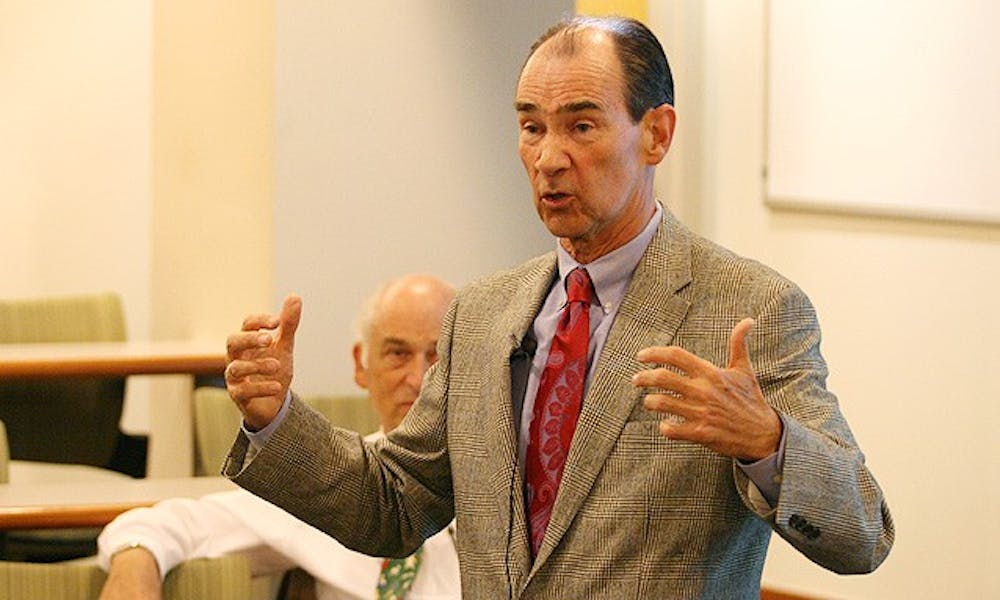In order to curb the use of narcotics abroad, the United States should focus on strengthening law enforcement on a local level, a state official said.
In a lecture Friday, Mark Wells, director of the Office of Americas Programs for the Bureau of International Narcotics and Law Enforcement Affairs, discussed changes in America’s counter-narcotic policies in Central America and South America. American interests in eradicating drug problems extend beyond American borders, Wells said. Comparing past efforts that focused on aiding foreign countries by substituting cocaine cultivation with alternative crops, Wells noted that the United States government is now pursuing a strategy of consolidation.
“The whole government approach, which we termed consolidation, helps the government control pockets of their countries that were uncontrolled and exploited by drug cartels,” Wells said.
In Colombia, the U.S. government has spent $1 billion to professionalize Colombian police forces and establish aviation forces to enable the local government to enforce its laws. In Mexico, efforts in past years involved providing non-intrusive equipment, such as scanners and police training, Wells said. With Mexico’s federal government made up of 31 separate states, the country presents a larger challenge in regulating narcotics than Colombia with its single federal government structure, he added.
The lecture also featured Ambassador Patrick Duddy, the U.S. Department of State’s diplomat in residence at the Center for International Studies and former U.S. ambassador to Venezuela. Duddy discussed American counter-narcotics efforts in Bolivia in the post-Cold War years through the turn of the millennium, as well as the U.S.’s three main branches of operation—interdiction, eradication and alternative development.
“In 2001 to 2002, we had nearly achieved our overarching goal to eradicate cocaine trafficking [in Bolivia] when the efforts fell apart because of political problems, such as persistent inequality and poverty,” Duddy said.
For countries that do not cooperate in America’s counter-narcotic efforts, aid is often taken away and sanctions are put in place, Duddy said. As for corrupt individuals involved in drug trafficking, the government will freeze their funds and publicly declare their criminal complicity. This may restrict the individuals’ mobility not only to the U.S. but also to other countries, Duddy added.
In the future, Wells said the U.S. plans to target multiple countries at a time to effectively combat illegal narcotics rather than focus solely on specific areas in Central and South America with drug trafficking problems.
“With Mexican and Colombian cooperation, this is the first time we will able to put some pressure on the entire region,” Wells said.
Cydney Justman, a graduate student in global health, said the academic community must recognize the complexity of forming and implementing policies to counter narcotic use. Justman added that the U.S. does not offer political asylum to people in unstable communities facing drug problems, which raises further ethical questions on the issue.
“These people in many ways are obliged to cooperate with the drug cartels because they often provide protection and security in these communities,” Justman said.
Sandra Ley Gutierrez, a graduate student in political science, said the weight of the U.S. and its decisions make it important to know the perspective of the government. She noted, however, that more attention should be placed on the effects of counter-narcotics policies abroad on innocent civilians.
“We need to think about the community the civilians live in and what they can do to better that community,” she said.
Correction: A previous caption for this article's picture incorrectly identified the speaker as Mark Wells, not Patrick Duddy. The Chronicle regrets the error.
Get The Chronicle straight to your inbox
Signup for our weekly newsletter. Cancel at any time.

